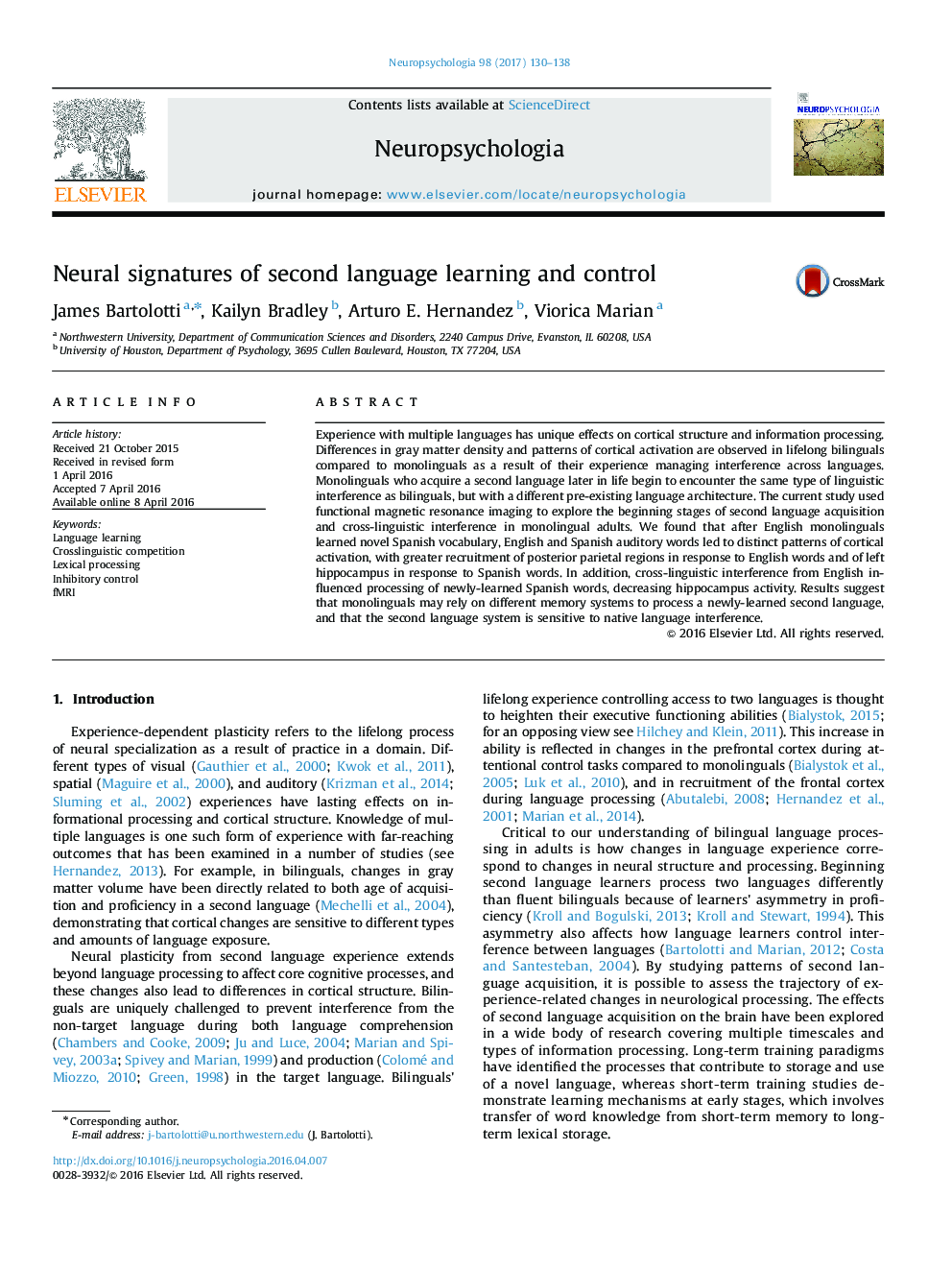| کد مقاله | کد نشریه | سال انتشار | مقاله انگلیسی | نسخه تمام متن |
|---|---|---|---|---|
| 5045276 | 1475557 | 2017 | 9 صفحه PDF | دانلود رایگان |
- Phonological memory and inhibitory control affect second language vocabulary learning.
- Distinct neural activation for native versus newly-learned second language words.
- Cross-linguistic interference alters hippocampus activation in the second language.
Experience with multiple languages has unique effects on cortical structure and information processing. Differences in gray matter density and patterns of cortical activation are observed in lifelong bilinguals compared to monolinguals as a result of their experience managing interference across languages. Monolinguals who acquire a second language later in life begin to encounter the same type of linguistic interference as bilinguals, but with a different pre-existing language architecture. The current study used functional magnetic resonance imaging to explore the beginning stages of second language acquisition and cross-linguistic interference in monolingual adults. We found that after English monolinguals learned novel Spanish vocabulary, English and Spanish auditory words led to distinct patterns of cortical activation, with greater recruitment of posterior parietal regions in response to English words and of left hippocampus in response to Spanish words. In addition, cross-linguistic interference from English influenced processing of newly-learned Spanish words, decreasing hippocampus activity. Results suggest that monolinguals may rely on different memory systems to process a newly-learned second language, and that the second language system is sensitive to native language interference.
Journal: Neuropsychologia - Volume 98, April 2017, Pages 130-138
